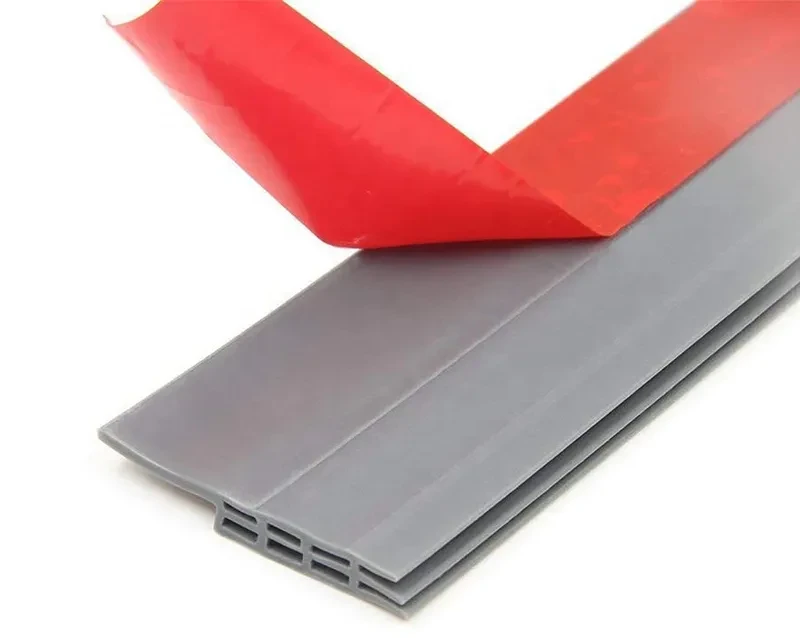Designing Durable D-Shaped Rubber Seals for Various Applications in Industry
The Importance and Applications of D-Shaped Rubber Seals
D-shaped rubber seals are an essential component in various industries, thanks to their unique design and functional capabilities. These seals are generally used to provide a barrier against the infiltration of dust, water, and other environmental contaminants. Their shape is particularly advantageous for applications that require high levels of sealing flexibility, durability, and ease of installation.
Understanding the D-Shape Design
The D-shape design refers to the cross-sectional profile of the seal, where one side is flat and the other is rounded, resembling the letter D. This configuration allows for a greater surface area to make contact with a mating surface, ensuring a tighter seal and improved adhesion. The flat side can be easily mounted against a flat surface, while the rounded side provides a cushioning effect during compression, making it suitable for dynamic as well as static applications.
Material Composition
D-shaped rubber seals are typically made from various rubber compounds, including neoprene, EPDM (ethylene propylene diene monomer), and silicone. Each material has its specific properties, making it more suitable for certain environments. For instance, EPDM rubber is highly resistant to UV rays, ozone, and weathering, which makes it ideal for outdoor applications. Silicone, on the other hand, can withstand extreme temperatures, both high and low, making it a go-to option for applications in heated or refrigerated environments.
Applications Across Industries
The versatility of D-shaped rubber seals makes them useful in numerous sectors, including automotive, construction, aerospace, and appliance manufacturing
.1. Automotive Industry In cars, D-shaped seals serve as door and window weatherstripping, ensuring that rainwater doesn't seep into the cabin. They are also used around hoods and trunks to provide a barrier against dust and moisture, thereby protecting the vehicle's interior from corrosive damage.
2. Construction and Building In construction, D-shaped seals are often employed in windows and doors to improve energy efficiency. By minimizing air leakage, these seals can contribute to better insulation and lower heating and cooling costs. They are also utilized in expansion joints and other structural applications, where flexibility and durability are necessary.
d shaped rubber seal

3. Aerospace The aerospace industry requires components that meet stringent safety and performance standards. D-shaped rubber seals are used in aircraft cabins and cargo areas to maintain pressurization and prevent the ingress of contaminants during flight.
4. Appliances Household appliances like refrigerators, ovens, and washing machines often incorporate D-shaped rubber seals. In refrigeration units, these seals maintain airtight conditions, reducing energy consumption and enhancing the appliance's efficiency.
Advantages of D-Shaped Rubber Seals
The unique characteristics of D-shaped rubber seals offer a variety of benefits, including
- Ease of Installation The D-shaped design allows for easy installation, often requiring only a simple press-fit method. This factor not only saves time but also reduces labor costs.
- Customizability These seals can be easily manufactured in different sizes and lengths, fulfilling the specific requirements of various applications.
- Resilience Rubber seals have excellent resistance to environmental factors, such as temperature variations, moisture, and chemical exposure. This resilience results in a long service life and reliability.
- Cost-Effectiveness Given their durability and performance, D-shaped rubber seals represent a cost-effective solution in terms of both upfront investment and long-term maintenance.
Conclusion
D-shaped rubber seals play a vital role across numerous industries, enhancing product performance and longevity. Their innovative design, combined with the durability of rubber materials, makes them indispensable in a multitude of applications. As industries continue to evolve, the demand for effective sealing solutions like D-shaped rubber seals will only increase, affirming their ongoing relevance in modern manufacturing and engineering practices.
-
Under Door Draught Stopper: Essential ProtectionNewsJul.31,2025
-
Garage Door Seal and Weatherstrips for ProtectionNewsJul.31,2025
-
Edge Banding Tape for Perfect EdgesNewsJul.31,2025
-
Table Corner Guards and Wall Corner ProtectorsNewsJul.31,2025
-
Stair Nose Edging Trim and Tile Stair SolutionsNewsJul.31,2025
-
Truck Bed Rubber Mats for Pickup BedsNewsJul.31,2025
-
Window Weather Stripping for Noise ReductionNewsJul.29,2025